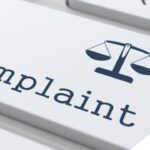Introduction
To ensure swift justice in human rights violation cases, Indian law allows for the establishment of Human Rights Courts at the district level. These courts handle serious offenses linked to the infringement of fundamental human rights. The provision is laid out under Section 30 of the Protection of Human Rights Act, 1993.
Establishment and Function Of Human Rights Court Under Section 30
The State Government can set up a Human Rights Court in every district. It must obtain the concurrence of the Chief Justice of the High Court before doing so. This is done through an official notification. These courts are designated from existing Sessions Courts. Their purpose is to provide speedy trials for offences related to human rights violations.
However, this rule does not apply in all cases. If a Sessions Court is already functioning as a Special Court under any other law, the State cannot designate it again as a Human Rights Court. Likewise, if another Special Court is already formed under any current law for the same offense, then the provision under Section 30 does not apply.
State of A.P. v. NHRC (2006)
In State of Andhra Pradesh v. National Human Rights Commission, (2006) 3 SCC 303, the Supreme Court highlighted the importance of establishing Human Rights Courts for ensuring fast and focused trials in rights violation cases. The NHRC had directed the State to designate such courts promptly. The Court noted that failure to do so delays justice for victims. It also stressed that mere appointment of a Sessions Court is not enough unless proper staff, infrastructure, and procedures are in place. This case reaffirmed the State’s responsibility to create efficient and functional Human Rights Courts.
Conclusion
Human Rights Courts play a crucial role in ensuring timely justice for victims of human rights abuses. By giving priority to such offenses, these courts aim to strengthen the protection of fundamental rights in India. The law ensures that no duplication happens if a Special Court already exists. Still, the responsibility lies with State Governments to set up and empower these courts effectively with judicial oversight.








